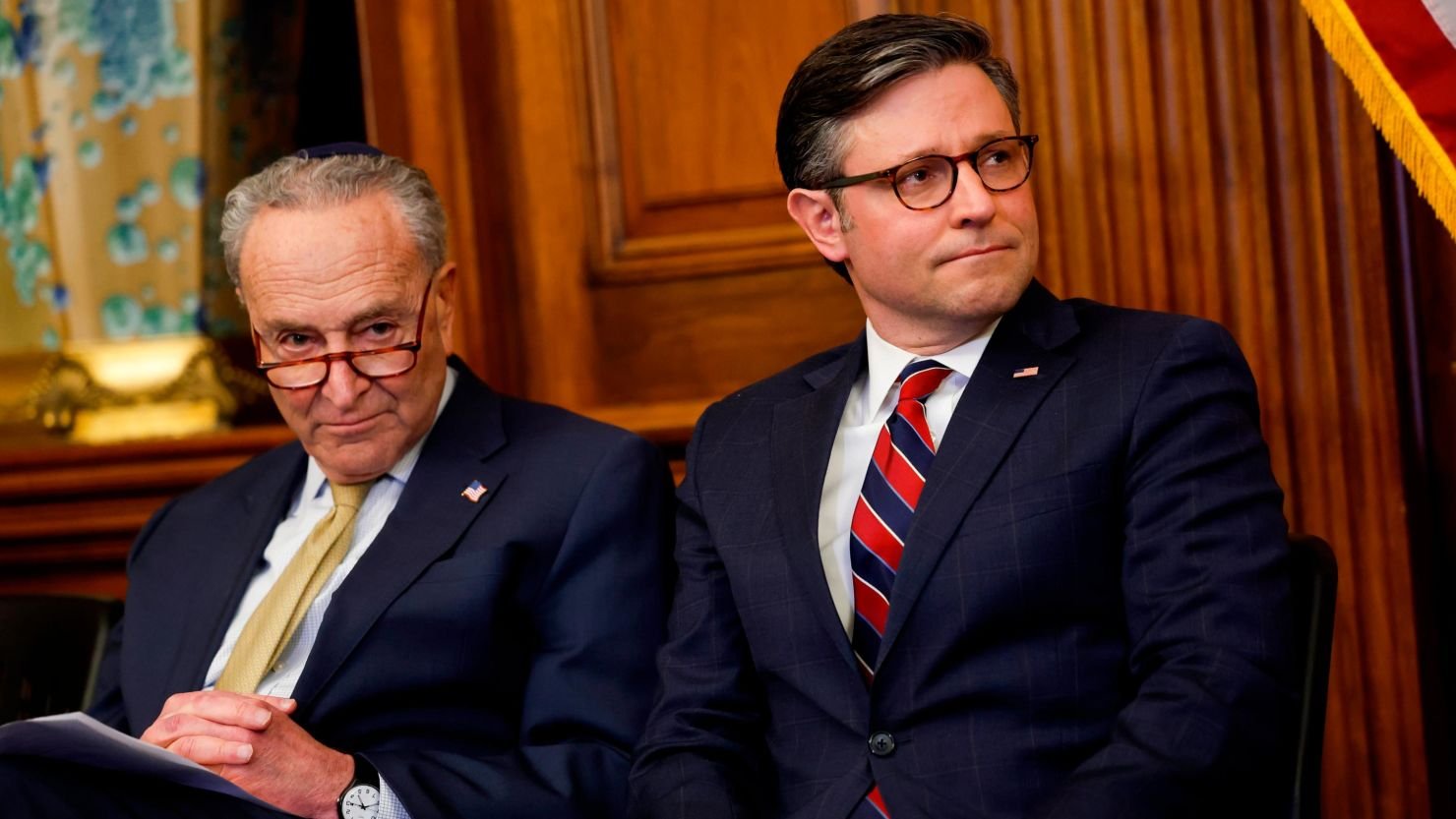With the familiar specter of a looming government shutdown once again casting its shadow over Capitol Hill, lawmakers find themselves in a race against time to broker a spending agreement before Friday’s deadline. This scenario marks the fourth instance in recent months where Congress has approached such a critical juncture, with previous deadlines yielding only short-term solutions and deferrals of more permanent funding resolutions.
The groundwork for a spending agreement was laid back in January, outlining overall expenditure allocations. However, the subsequent weeks have been fraught with challenges as policymakers grapple with the intricate task of distributing these funds across various agencies amidst policy disputes and competing spending priorities.
As the countdown to a potential partial shutdown dwindles to just five days, essential bills for crucial sectors such as agriculture, food and drug administration, energy and water, military construction, veterans affairs, transportation, and housing programs remain conspicuously absent. Compounding the urgency is the proximity of yet another deadline: funding for key departments including Health and Human Services, Commerce, Labor, State, and Defense expires on March 8.
The current predicament stems from the annual obligation to pass 12 appropriations bills, which are essential for sustaining government operations throughout the fiscal year. In 2023, when it became evident that this deadline would not be met, then-House Speaker Kevin McCarthy took extraordinary measures, risking his position to secure an extension through November. However, this move sparked internal strife within the Republican Party, as hard-right factions clamored for conservative policy concessions that were not included in the extension.
Subsequent extensions in November and January, orchestrated under the leadership of Rep. Mike Johnson, have continued to face staunch resistance from ultraconservative House members advocating for policy riders ranging from abortion restrictions to cuts in food assistance. These demands clash with the stance of Senate Republicans and Democrats, who prioritize funding the government without attaching contentious policy amendments.
The current impasse underscores the deepening divide between factions within the Republican Party, with accusations flying regarding which side is responsible for stalling progress. Senate Minority Leader Mitch McConnell has emphasized the necessity for unity in navigating the complex negotiations, highlighting the imperative for cohesive action.
In the event of a government shutdown, non-essential federal agencies and employees would be forced to suspend operations, resulting in widespread furloughs. While essential personnel such as air traffic controllers and emergency responders would continue working without pay, the broader impact on federal programs and services would be significant. Delays in food assistance benefits, disruptions to food safety inspections, and potential funding cuts to vital programs such as the Special Supplemental Nutrition Program for Women, Infants, and Children (WIC) underscore the far-reaching consequences of a shutdown.
As the deadline looms closer, there remains a glimmer of hope for a last-minute resolution. Lawmakers may announce an agreement on key appropriations bills imminently, paving the way for swift legislative action to avert a shutdown. However, should negotiations falter, the prospect of another short-term extension or even a full-year funding measure will be on the table, albeit with diverging viewpoints within the Republican Party on the most viable path forward.
Ultimately, the urgency of the situation necessitates a concerted effort to bridge partisan divides and prioritize the continuity of government services. The coming days will undoubtedly be pivotal in determining whether Congress can surmount the challenges and deliver a timely and effective funding solution to avert a government shutdown.
